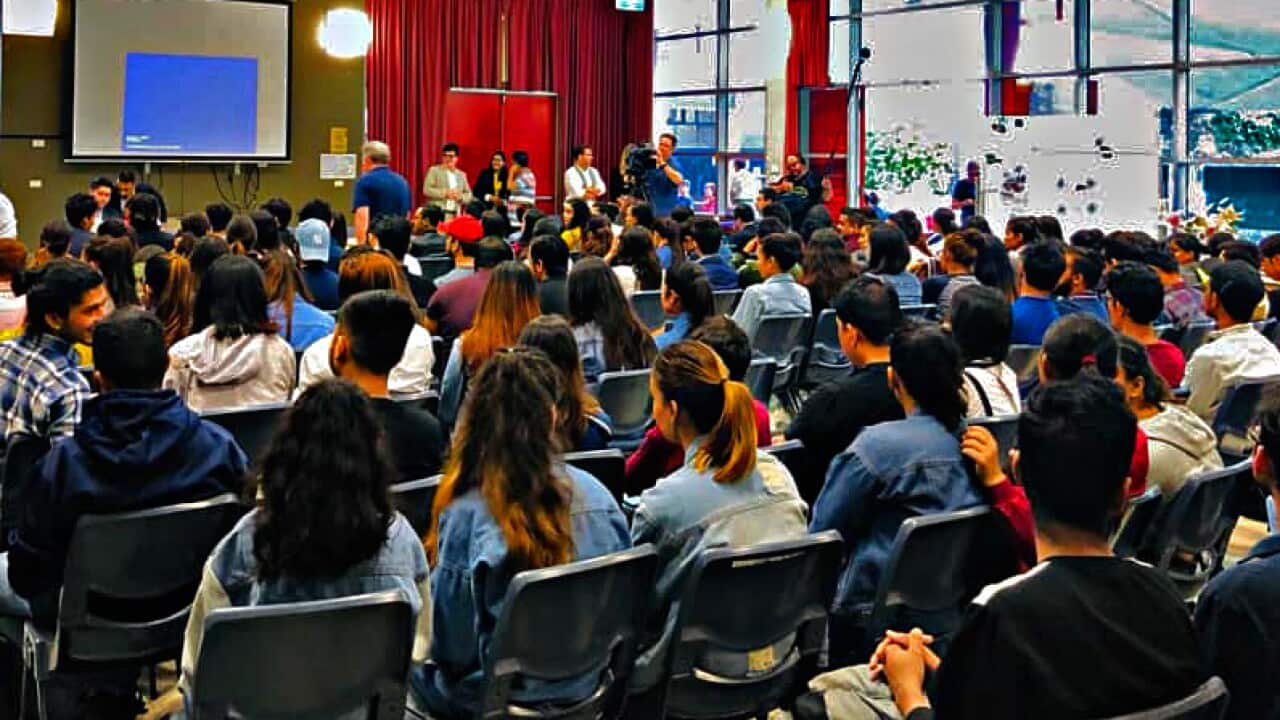In a statement issued to media on 21 February, the Kathmandu-based embassy admitted it is well aware of the "significant impacts for the hundreds of students enrolled in the institute, many of whom are Nepalese."
This comes the authorities in Nepal and parents of the impacted students amongst others are raising the issue with the Australian government.
As reported by SBS Nepali earlier on Tuesday, the embassy has confirmed Brighton Pacific Pty Ltd trading as AIBT was notified by ASQA to cancel both its Vocational Education and Training (VET) registration and Commonwealth Register of Institutions and Courses for Overseas Students (CRICOS) effective 26 March 2019.
However, after being contacted by SBS Nepali, AIBT indicated that it “intends to strenuously defend the decision of ASQA” and had also already instructed specialist lawyers and senior counsel.
AIBT's company director Ms Fiona Kee said, "We have engaged a legal team to appeal the recent ASQA decision."
It also informed SBS Nepali that its appeal includes a stay of ASQA's decision.
As such, the training provider can continue operating and conduct classes normally until the review is determined by the Administrative Appeals Tribunal (AAT).
Embassy advises students to remain enrolled
Hence, the embassy has advised all students studying at AIBT to remain enrolled and continue to attend the classes "to ensure that the conditions of their visa are met and their recourse to the Tuition Protection Service (TPS) is assured should the provider cease delivering its courses."
According to a statement issued to media by the AIBT, the training provider is proffering pupils support and was discouraging them from switching to a new provider as many students "nearly got their qualifications".
The spokesperson for the Non-Resident Nepali Association-Australia (NRNA-A) Mr Dila Kharel told SBS Nepali said, "We are very concerned with the recent developments regarding AIBT and Nepali students. We are currently working with all the stakeholders to ensure an appropriate solution can be found to the matter."
He accused some media of sensationalising the issue by exaggerating and blowing up the whole affair.
"There have been whole commentaries in the social media about how grave this situation is. This is not the case. Yes, there is an issue, and we are working towards a solution," he told SBS Nepali.
This comes as about 200 students met yesterday in Sydney in a town hall-like gathering with various stakeholders including Nepali embassy officials, the Consulate General Nepal to NSW, education agents and representatives from The Council of International Student Australia (CISA).
The embassy has also stressed that should AIBT cease to operate; it will be the responsibility of the training provider to find pupils an alternative course or pay them a refund of their unspent tuition fees.
"If an alternative placement is not possible, the TPS will seek to place the institute’s students with an alternate provider or if that is not possible, consider a refund of the students’ unspent tuition fees," the statement reads.
According to the embassy, the Department of Home Affairs (DHA), would also allow a grace period of at least 28 days and up to three months for students to transfer to alternate providers before it would consider visa cancellation.
"Further extension may be possible on a case by case basis," it adds.
The Australian embassy in Nepal has also asked the education agents in Nepal to provide services to prospective students in good faith and provide factual information on the institutions they claim to represent.
It has also requested prospective students seeking to come to Australia for further studies to "do as much research as possible on education institutions, courses of interest, costs, lifestyle in Australia and any other relevant factor, including by visiting the website ."

